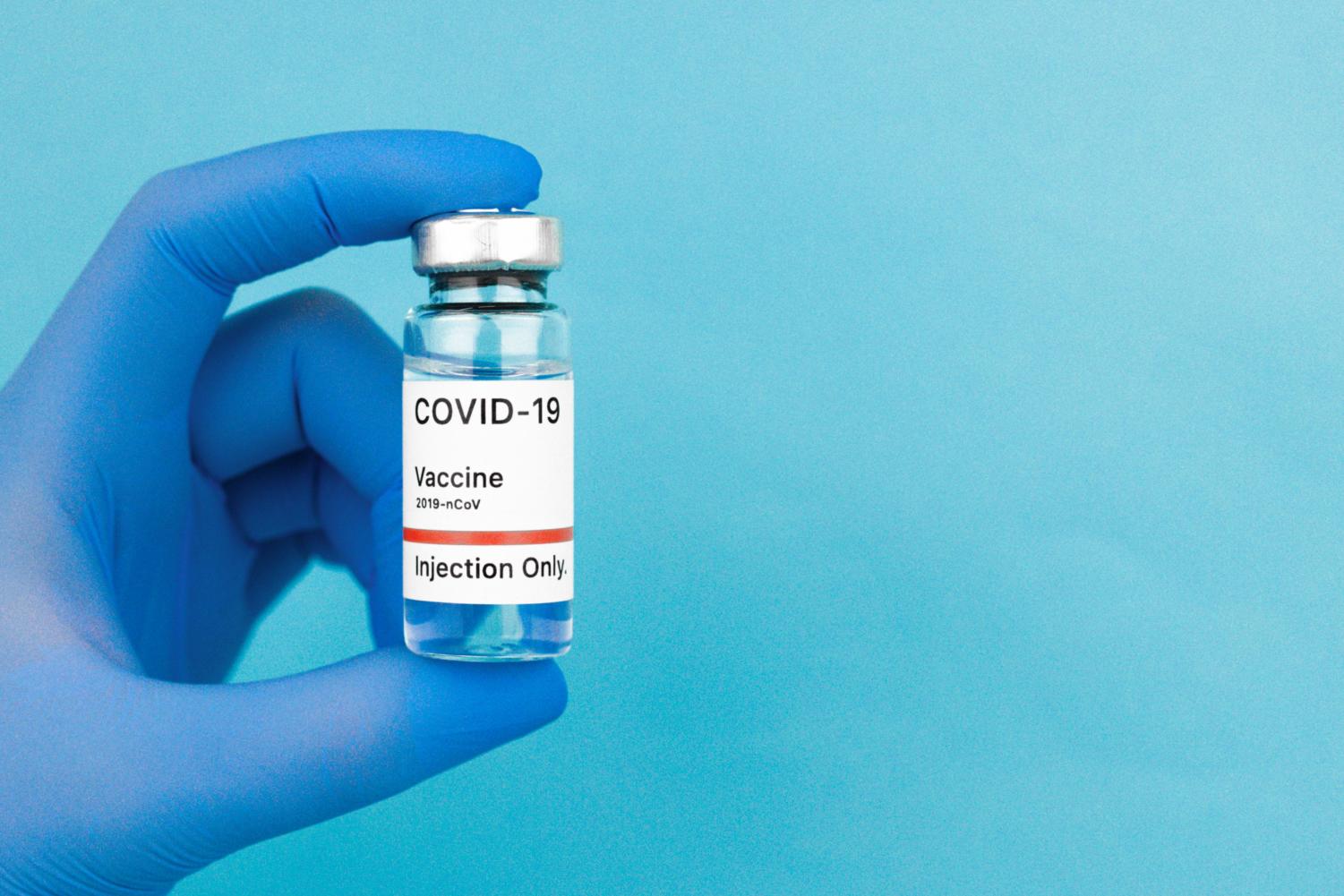COVID-19 Vaccination PRO-CON
November 8, 2021
The importance of being vaccinated

Claire Kisielnicki is an editor-in-chief for The Prospector. This is her first year on staff.
On May 15, 2021, I got my first Pfizer vaccine for COVID-19.
As a part of the younger generation, I feel an obligation to protect the older generations as well as generations to come.
This is why I decided to get the vaccine for COVID-19. I wanted to guarantee that not only would I be safe from the virus but also that my family would be safe.
Herd immunity is a vital way to protect people from a virus, and getting the vaccine is a way to create herd immunity without thousands of people dying. Herd immunity is the resistance to the spread of an infectious disease within a population that is based on pre-existing immunity of a high proportion of individuals as a result of previous infection or vaccination.
Immunization allows your body to fight off the virus, including mutations. A variant of the virus can be transmitted easier than the original virus, and being vaccinated can lessen the amount of time that it is possible to spread different variants.
Although the vaccine is new, studies on different strains of Coronaviruses have been conducted for many years now. This past knowledge means that the development of the Covid-19 vaccine could be sped up. Knowing that there is past knowledge of this type of virus makes me feel more comfortable with the fast development of the vaccine.
When a person first gets the vaccine, there is a possibility that you will experience mild Covid symptoms. This is normal as it is the human body building immunity against the virus. Instead of dosing a small amount of the virus, the vaccine uses mRNA to teach our cells how to make a protein that will trigger an immune response inside our bodies.
When someone gets a virus, as their body fights it off, it creates memory cells that allow the immune system to remember how to fight off the virus if it comes back. The Covid-19 vaccination provides the memory cells without actually getting the virus. Studies have shown that participants still had memory cells to fight off the virus after six months of being fully vaccinated.
The FDA regulates vaccines. On December 11, 2020, the FDA issued an Emergency Use Authorization (EAU); this is different from a vaccine approval. When the FDA issues an EAU, they do an assessment of all evidence and potential risks or benefits of a vaccine and determine if there is enough scientific evidence to make it available to the public. Knowing that scientists and members of the FDA are doing everything they can to ensure that the vaccine is safe before issuing it as an EAU shows that it was not just pushed through, and people are making sure it is okay to use.
I feel it is also essential that people research something before they make a decision about it. Before I got my vaccine, I heard misinformation from people on the internet and in classes. This made me question the vaccine and fear it was not a good idea anymore.
I decided to do research on the vaccination and make my decision based on factual research on government-approved websites such as the CDC rather than information on social media. After doing research, it calmed my nerves, and everything I heard turned out to be false.
Although the FDA approved the vaccine for people ages 16 and up on December 11, 2020, Coloradans 16 and up were not eligible until April 2nd, and by April 19, all states in the country approved eligibility for people 16 and up.
So even though December 11th seems very early and rushed, states took the proper precautions to make sure they felt comfortable allowing the vaccine through to younger people.
For many years vaccines have been the commonplace method to prevent disease. Politics should not have an impact on a person’s decision to be vaccinated, and the most important thing is the science behind the facts.
Why vaccination should be a choice

Emily Waite is a senior reporter for The Prospector. This is her first year on staff.
Although I don’t believe the COVID-19 vaccine is overall a bad thing, I personally choose to not get the vaccine for multiple reasons.
The first Emergency Use Authorization (EUA) for the Pfizer-BioNTech COVID-19 Vaccine was issued on December 11, 2020. This first EUA for the Pfizer vaccine was issued to individuals above the age of 16. This was just eleven short months after the first COVID-19 case was reported in the United States. Vaccines are typically tested for 10-15 years before they have officially gone through all of the necessary testing, trials, and approvals to be given to the public.
Even though the Pfizer vaccine became available in Colorado for all individuals above the age of 16 and Moderna and Johnson and Johnson vaccines were limited to above the age of 18 as of April 2, 2021, this was only thirteen short months after the pandemic was officially declared on March 11, 2020, by the World Health Organization. This is well below the average of 10-15 years; it is typically required before releasing a new vaccine.
The Pfizer and Moderna COVID-19 vaccinations do not work like other vaccinations. “Many other vaccines use a piece of, or weakened version of, the germ that the vaccine protects against. This is how the measles and flu vaccines work. When a weakened or small part of the virus is introduced to your body, you make antibodies to help protect against future infection.” said the CDC.
The Pfizer and Modera COVID-19 vaccines are messenger mRNA vaccines. According to MedlinePlus, this type of vaccine works by adding a piece of mRNA that resembles the outer shell of the COVID-19 virus. This is then reproduced throughout the rest of the body’s cells. As an immune response, the cells know the mRNA isn’t supposed to be in the body, so it creates proteins called antibodies.
The biggest issue with this type of vaccine is that it alters the mRNA in your body to create this immune response. The long-term effects of this vaccine are not yet known since this vaccine was developed in under a year. Since it was developed in this short amount of time, it didn’t have enough time to see the long-term effects of the vaccine. So, considering this information, it implies that the individuals who currently have the vaccine are the trial runs and are currently waiting to see these long-term effects.
Another issue with the COVID-19 vaccine is that it is causing some people to lose their jobs if they choose not to receive the vaccine. This is a violation of a person’s right to their own body. If an individual chooses to not put a substance into their body, because they do not feel comfortable with it, then there is a possibility in certain careers that they can be terminated from their positions. Even though, in the United States of America, adults have the right to personal autonomy in matters relating to their own medical care.
I personally do not believe that this should be okay. While I do understand why some individuals would like the vaccine, I do not think that it is okay to make it mandatory to receive this vaccine or have the possibility of being terminated because you choose not to receive the vaccination. I believe it should be a choice to receive this vaccine just as every other vaccine is and should not have major consequences if chosen to not receive it, such as being terminated.
I made the decision not to receive the vaccine based on my own research. If it makes other people feel safer to receive the COVID-19 vaccine, then I support their decision just like I would want other people to support mine.
